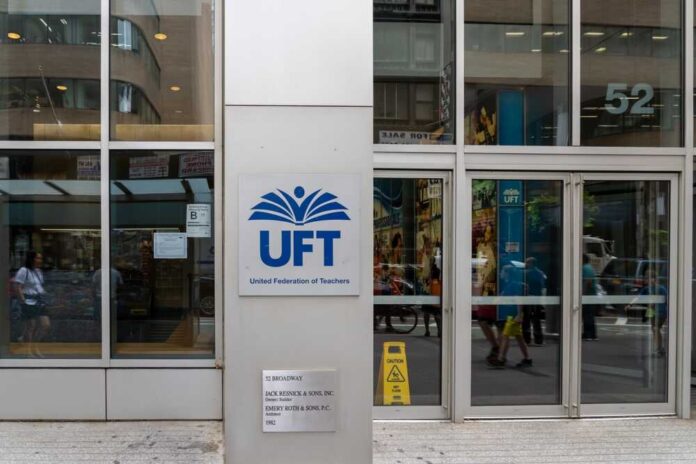
Despite The United Federation of Teachers’ clamor for higher property taxes, reports showed that the union earned a whopping $17 Million in tax breaks on properties it owned in New York.
NEW from me
The United Federation of Teachers has long argued for property tax increases in New York City — but have managed to reduce their own property tax bill by more than $17 million since 2009, records showhttps://t.co/qzDcg6JKDt
— Jon Levine (@LevineJonathan) March 4, 2023
Public records reveal the union’s huge savings come from property taxes and other credits on its two Financial District buildings. Since 2009, the UFT has secured at least 129 separate tax breaks and refunds from the city Department of Finance.
From as little as $1,252.92 for a commercial expansion credit in February 2020 to as much as a staggering ICIP $689,568 deduction in August 2009, the union has a reputation for enjoying such benefits.
The massive tax benefits enjoyed by the union over the years suggest that it is somewhat hypocritical to demand higher taxes on others. The news that union leaders call for higher taxes in several areas is shocking. Their actions have allegedly been justified by a need to secure better teacher pay.
Aside from the millions of dollars enjoyed in benefits, the New York Post reported that UFT has initiated at least thirty-three legal processes challenging the real estate tax assessment on its properties to reduce its real estate taxes.
For a group that pushes to have everyone pay their “fair share”, they sure do all they can to reduce their own tax bills! Another example of why we need to get rid of public sector unions. More charter schools, less greedy unions. https://t.co/73uWjp4wDA
— PROUD Pro-Lifer! 🙏🏻👶🏼👶🏻👶🏽👶🏾👶🏿🙏🏻 (@The_Bunny_Guy) March 4, 2023
The union’s hypocritical moves are not recent. Some date back to 2014. The union had said taxes levied on out-of-state landlords are absurdly low, calling for a raise to secure more education funding.
Critics have found it amusing that the city that offers the union tax breaks pays them to lease a space in their buildings. Since 2010, the union has collected over $6 Million in rent and other payments from the city.
Rep. Nicole Malliotakis (R-NY) criticized the union for its hypocrisy and double standards.
“Ask any teacher, firefighter, or police officer on #StatenIsland whether they can afford a property tax hike. It’s unconscionable that some people think hard-working taxpayers are ATMs with endless funds…” Rep. Nicole Malliotakis told @nypost.
https://t.co/A0sqFpvKye— Nicole Malliotakis (@NMalliotakis) March 5, 2023
“Ask any teacher, firefighter, or police officer on Staten Island whether they can afford a property tax hike. It’s unconscionable that some people think hard-working taxpayers are ATMs with endless funds when the truth is if properties like the ones owned by UFT paid their fair share, the burden wouldn’t be falling on the middle class,” Malliotakis told The Post.










